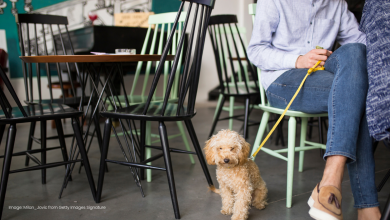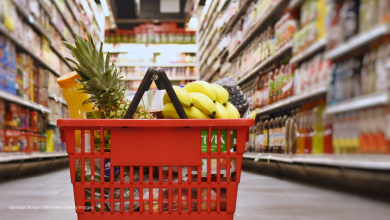
In 2023, the halal tourism market is valued at about $266.3 billion. It’s expected to grow to $417.6 billion by 2034, with an annual growth rate of 3.6% from 2024 to 2034, according to the International and Domestic Tour Types. With the increasing demand for halal travel experiences, this indicates a significant opportunity for entrepreneurs in the market.
What is Halal Tourism?
Halal tourism refers to travel that follows and caters to Islamic guidelines, offering services for the needs of Muslim travelers. This includes providing Halal food, prayer facilities, gender-segregated accommodations, and respecting Islamic values and practices. With the Muslim travel market projected to reach $300 billion by 2026, according to the State of the Global Islamic Economy Report, the potential for growth and profitability in Halal tourism is undeniable.
Malaysia Leads the Way in Halal Tourism

Malaysia has already established itself as a top destination for Muslim travelers globally, according to the Mastercard-CrescentRating Global Muslim Travel Index. The nation shares the leading spot with Indonesia in the Global Muslim Travel Index (GMTI) 2024. With the Muslim travel market set to grow significantly, even surpassing pre-pandemic levels, there is a large opportunity for those in this area.
Known for its halal-friendly facilities
As the demand for halal food, Muslim-friendly accommodations, prayer facilities, and tailored travel experiences continues to rise, entrepreneurs in Malaysia are well-positioned to seize this moment. Most restaurants in Malaysia are halal-certified and prayers room can almost be found anywhere in public spaces. The country’s strong infrastructure and reputation make now the perfect time to innovate and expand halal tourism offerings. This might mean creating more halal-certified services, boosting the visibility of Muslim-friendly amenities, and using technology to meet the unique needs of Muslim travelers.
Neighboring countries like Indonesia, Thailand, and the Philippines in halal tourism also underline Malaysia’s chance to stay ahead. By further investing in this sector, Malaysian entrepreneurs can not only draw more Muslim travelers but also help drive the country’s broader economic growth through tourism.
Encouragement From Key Figure

During the recent Tourism and Halal Food Expo, key figures such as Datuk Ewon Benedick, Minister of Entrepreneur and Cooperatives Development, shared his enthusiasm for entrepreneurs diving into the promising realm of halal tourism.
Datuk Ewon Benedick expressed his confidence in the positive impact of the expo, also stating online, “I am confident that this expo can make a meaningful contribution to our country’s tourism sector, starting with Malaysians traveling within the country and purchasing or using the services of local entrepreneurs.” He emphasized on the potential of halal tourism by encouraging domestic travel and consumption of locally offered services.
They shed light on the sector’s immense growth potential and stressed the pivotal role of innovation and expansion in driving forward halal tourism. This event is a valuable platform for entrepreneurs to venture into fresh business opportunities, engage with industry leaders, and tap into the resources offered by institutions like Bank Rakyat. With a firm commitment to digital transactions and providing tailored financial solutions for tourism packages, Bank Rakyat stands as a supportive ally for those navigating the halal tourism landscape.
The Tourism and Halal Food Expo, organized by Bank Rakyat, took place at Dewan Tun Abdul Razak, Menara Kembar Bank Rakyat, Kuala Lumpur. This five-day event, running from 21 to 25 August, features over 150 leading tourism agencies and halal food businesses, including Tourism Malaysia, Islamic Tourism Centre, Mamasab, Muiz Hot Chicken, and Mak Jenny.
Advantages for Entrepreneurs
Halal tourism serves as a perfect opportunity for entrepreneurs in Malaysia with its Muslim-friendly facilities and halal food choices. Through this opportunity, they could boost their business revenue with meeting the preferences and needs of Muslim travelers from other countries. They could also have the chance to stand out even more in the competitive halal market. By focusing on Halal-friendly services, businesses or brands can attract loyal customers.
Mastercard estimates that Muslim arrivals will reach $230 billion by 2028, with estimated expenditure of $225 billion. This means there is a big chance for Halal tourism to expand. It is essential that Malaysian entrepreneurs take advantage of this opportunity and fully utilize the potential it brings.
Conclusions
The rapidly growing halal tourism market offers significant opportunities for Malaysian entrepreneurs, with projections indicating an increase from $266.3 billion in 2023 to $417.6 billion by 2034. Malaysia’s established reputation as a halal-friendly destination positions it well to meet the rising demand for tailored travel experiences among Muslim travelers. By enhancing halal offerings and leveraging technology, entrepreneurs can capitalize on this opportunity. As encouraged by industry leaders, now is the perfect time to enhance the potential of halal tourism. In return, this will make Malaysia a favorable destination for Muslim travelers.




